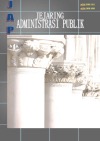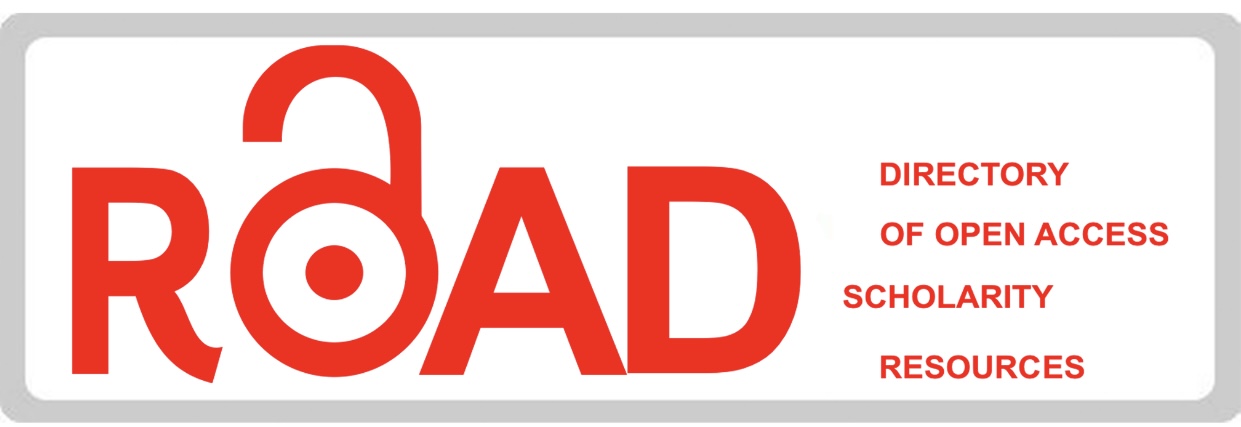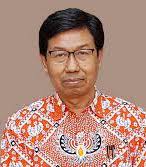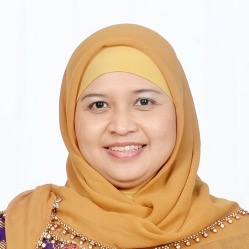Kredibilitas Informasi di Era Post-Truth Dikalahkan Kecepatan Informasi: Pengabaian Undang Undang Informasi dan Transaksi Elektronik
Downloads
Many people choose social media as a source of information that is considered the fastest and most up-to-date without knowing its credibility for sure. In the post-truth era, social media has shifted the power of logic and facts, and often the information on it is considered true. This study aims to gain an understanding of the credibility of information uploaded by the Twitter account @AREAJULID. By using a virtual ethnography approach. This qualitative research explores the existence of a phenomenon of attraction between the influence of information speed and information credibility. The results of the search on the @AREAJULID account show that many followers of the account have the assumption that the speed of content uploaded by @AREAJULID makes it a trusted source of information. They even disseminate the information by retweeting and sharing the link on other social media channels such as Facebook, TikTok and WhatsApp. The followers' actions ignore the existence of the Electronic Information and Transaction Law. The post-truth era makes the @AREAJULID account a credible source of information precisely because of the speed of uploading and not because of the truth of the information.
Keywords: post-truth, virtual ethnography, information credibility
Abidin, I. K. R., Wulandari, S. A., & Achmad, Z. A. (2021). Business competition related to the rapid test service for diagnosis of COVID-19 in hospitals in Surabaya, Indonesia. Journal of Peace, Development and Communication, 5(04), 48–62. https://doi.org/10.36968/JPDC-V05-I04-04
Achmad, Z. A. (2020). Review Buku: Mediamorphosis: Understanding New Media by Roger Fidler. In A. Kriswibowo & E. R. Nawangsari (Eds.), Potret Masyarakat dan Kebijakan Pemerintah dalam menghadapi tantangan Pandemi Covid-19 (pp. 71–77). Prodi Administrasi Negara UPN Veteran Jawa Timur.
Achmad, Z. A. (2021). Perbandingan Sistem Pers dan Sistem Pers Indonesia (2nd ed.). Sahaja. https://id1lib.org/book/17007540/52a09f
Achmad, Z. A., Alamiyah, S. S., Juwito, J., Wahyudi, A., & Siswati, E. (2022). Review berita dan regulasi lokal pada Indeks Demokrasi Indonesia di kota Blitar tahun 2020. AKUNTABEL: Jurnal Akuntansi Dan Keuangan, 19(2), 448–458. https://doi.org/10.29264/JAKT.V19I2.10977
Achmad, Z. A., & Ida, R. (2018). Etnografi Virtual Sebagai Teknik Pengumpulan Data dan Metode Penelitian. The Journal of Society & Media, 2(2), 130–145. https://doi.org/10.26740/jsm.v2n2.p130-145
Achmad, Z. A., Juwito, J., Candrasari, Y., & Ashfaq, A. (2021). Advantages of implementing mediamorphosis in supporting Using-ethnic programs at Radio Sritanjung FM Banyuwangi. Masyarakat, Kebudayaan Dan Politik, 34(2), 133–146. https://doi.org/http://dx.doi.org/10.20473/mkp.V34I22021.133-146
Achmad, Z. A., Mardliyah, S., & Pramitha, H. (2018). The Importance of Parental Control of Teenagers in Watching Anime with Pornographic Content on the Internet. Proceedings of the International Conference on Contemporary Social and Political Affairs (IcoCSPA 2017), 81–84. https://doi.org/10.2991/icocspa-17.2018.22
Achmad, Z. A., Wiranata, I. M. A., & Mardliyah, S. (2016). Teenagers are Subjected to Cyber Bullying in Social Media Ask.fm. ICoCSPA 2016, 435–441. https://doi.org/978-602-18461-4-8
Amiruddin, A. (2018). Pemberdayaan Usaha Kecil Menengah (UKM) Binaan Dinas Perdagangan Kota Surabaya Dalam Upaya Meningkatkan Kesejahteraan. Repository.Unair.Ac.Id, 1–8.
Andayani, T. J., & Achmad, Z. A. (2020). "Parenting with Rumah Keluarga Risman” Facebook group as information society and determinant of technology function. Indonesian Journal of Social Sciences, 12(02), 62–72.
Angelone, L. (2018). Virtual Ethnography: The Post Possibilities of Not Being There. Mid-Western Educational Researcher, 31(3), 275–295.
Cardoso, G. (2008). From Mass to Networked Communication: Communicational models and the Informational Society. International Journal of Communication, 2(May), 44.
Cardoso, G., Lapa, T., & Di Fátima, B. (2016). People are the message? Social mobilization and social media in Brazil. International Journal of Communication, 10(August), 3909–3930.
David, H. (2012). New Media Theory | Parlor Press. Encyclopedia of Communication Theory, 1–6. https://www.parlorpress.com/newmediatheory.html
Destyani, B. W. (2018). Bentuk Dan Model Verifikasi Fakta Dalam Praktek Jurnalisme Partisipatif Radio Berita Di Era Konvergensi: Studi Kasus Pada Radio Elshinta. Universitas Multimedia Nusantara.
Fatimatuzzahro, F., & Achmad, Z. A. (2022). What If It Was You (#WIIWY) digital activism on TikTok to fight gender-based violence online and cyberbullying. Masyarakat, Kebudayaan Dan Politik, 35(4), 450–465. https://doi.org/10.20473/mkp.V35I42022.450-465
Febrianita, R. (2020). Information Disorder & the Online'S Gatekeeping Mechanism Struggle in Post Truth Era. JCommsci - Journal Of Media and Communication Science, 3(3), 134. https://doi.org/10.29303/jcommsci.v3i3.78
Fensi, F. (2019). Paradoxic Language "Cebong-Kampret” in Facebook As a Mirror of the Political Language of Indonesia. Bricolage : Jurnal Magister Ilmu Komunikasi, 5(02), 103. https://doi.org/10.30813/bricolage.v5i02.1887
Flew, T. (2002). New Media : an Introduction. Oxford University Press.
Flew, Terry. (2014). New Media (Fourth). Oxford University Press.
Fuchs, C. (2010). Labor in Informational Capitalism and on the Internet. The Information Society, 26(3), 179–196. https://doi.org/10.1080/01972241003712215
Gauntlett, D. (2000). Web.Studies: Rewiring Media Studies for the Digital Age (D. Gauntlett (ed.); 1st ed.). Hodder Education Publishers.
Hine, Christin. (2018). Virtual ethnography. Social Memory and Heritage Tourism Methodologies, 48–67. https://doi.org/10.4324/9781315797915-4
Hine, Christine. (2000). Virtual Ethnography. Sage Publications Ltd.
Hine, Christine. (2004). Virtual Ethnography Revisited. In Online Reearch Methods, Research Methods Festival.
Hine, Christine. (2015). Ethnography for the Internet: Embedded, Embodied, and Everyday. Bloomsbury.
Ikhwan, S. (2017). Media Sosial, Politik Post-truth, Dan Tantangan Kebangsaan.
Indonesia, P. R. (2008). UU Nomor 40 Tahun 2008 tanggal 10 November 2008, tentang Penghapusan Diskriminasi Ras dan Etnis.
Indonesia, P. R. (2016a). Undang-Undang Nomor 19 Tahun 2016 tentang Perubahan Atas Undang-Undang Nomor 11 Tahun 2008 Tentang Informasi dan Transaksi Elektronik.
Indonesia, P. R. (2016b). Undang-Undang Republik Indonesia Nomor 19 Tahun 2016 Tentang Informasi Dan Transaksi Elektronik.
Juditha, C. (2018). Interaksi Simbolik Dalam Komunitas Virtual Anti Hoaks Untuk Mengurangi Penyebaran Hoaks. Jurnal PIKOM (Penelitian Komunikasi Dan Pembangunan), 19(1), 17. https://doi.org/10.31346/jpikom.v19i1.1401
Llorente, J. A. (2017, March). The Post-Truth Era: reality vs. perception. UNO. https://www.uno-magazine.com/wp-content/uploads/2017/03/UNO_27_ENG_alta.pdf
Markham, A. N. (1998). Life Online: Researching Real Experience in Virtual Space. Alta Mira Press.
Miles, M. B., & Huberman, A. M. (1984). Qualitative Data Analysis : Handout. A Sourcebook of New Methods. California; SAGE Publications Inc., 1–8.
Murniaseh, E., Suratnoaji, C., Arviani, H., & Achmad, Z. A. (2021). Etnografi Virtual Tentang Proliferasi Pemakaian Lagu "Bertaut” Karya Nadin Amizah di Media Sosial. Jurnal Ilmu Komunikasi, 11(2), 121–138. https://doi.org/10.1080/14241277.2012.755682.1
Piliang, Y. A. (2004). Dia yang dilipat : Tamasya Melampaui Batas-Batas Kebudayaan. Jalasutra.
Potter, P., & Perry, A. G. (2011). Buku Ajar Fundamental Keperawatan :Konsep,Proses dan Praktik. ECG.
Preston. (2001). 65 Steps to Self-Confidence. How To Books Ltd.
Purwaningtyas, M. P. F., & Alicya, D. A. (2020). The Fragmented Self: Having Multiple Accounts in Instagram Usage Practice among Indonesian Youth. Jurnal Media Dan Komunikasi Indonesia, 1(2), 171. https://doi.org/10.22146/jmki.58459
Qumairoh, B., Achmad, Z. A., Tutiasri, R. P., & Kusnarto, K. (2022). Comparison of Misleading Information on Sriwijaya Air SJ-182 Accident between @detikcom and @kompascom. Metafora: Education, Social Sciences and Humanities Journal, 06(01), 24–39.
Rianto, P. (2019). Literasi Digital Dan Etika Media Sosial Di Era Post-Truth. Interaksi: Jurnal Ilmu Komunikasi, 8(2), 24. https://doi.org/10.14710/interaksi.8.2.24-35
Rochmana, S. D., Winarti, O., Kusuma, A., Nurhaqiqi, H., Achmad, Z. A., & Bergerat, V. C. (2022). Virtual ethnography of electronic word of mouth as a marketing enhancement. ETNOSIA : Jurnal Etnografi Indonesia, 7(1), 51–66. https://doi.org/10.31947/ETNOSIA.V7I1.21060
Safitri, A. D., Achmad, Z. A., Arviani, H., Zuhri, S., Mustikasari, R. P., & Chairil, A. M. (2022). Dampak Publisitas Negatif Cyber Abuse Melalui Tinder pada Remaja di Kota Surabaya. Metacommunication; Journal of Communication Studies, 7(1), 36–50. https://doi.org/10.20527/MC.V7I1.12679
Sehl, A., Cornia, A., & Nielsen, R. K. (2016). Public Service News and Digital Media. SSRN Electronic Journal. https://doi.org/10.2139/ssrn.2771076
Wahyono, E., Amalia, R., & Ranteallo, I. C. (2017). Menelaah Lebih Dekat "Post Factual/Post Truth Politics, Studi Kasus Brexit” (Analisis Resensi Media). Nyimak (Journal of Communication), 1(1), 23–31. https://doi.org/10.31000/nyimak.v1i1.272
Wahyuningtyas, D., Kusuma, A., Febrianita, R., & Achmad, Z. A. (2021). Local language programs in cultural radios to maintain Indonesian national identity. Etnosia: Jurnal Etnografi Indonesia, 6(1), 47–65. https://doi.org/10.31947/etnosia.v6i1.11973
Watie, E. D. S. (2016). Komunikasi dan Media Sosial (Communications and Social Media). Jurnal The Messenger, 3(2), 69. https://doi.org/10.26623/themessenger.v3i2.270
We Are Social. (2022). Pengguna Media Sosial di Indonesia Capai 191 Juta Pada 2022. Dataindonesia.Id.
Wilson, S. M., & Peterson, L. C. (2002). The anthropology of online communities. Annual Review of Anthropology, 31, 449–467. https://doi.org/10.1146/annurev.anthro.31.040402.085436
Zarzalejos, J. A. (2017). Communication, Journalism, and fast-checking. UNO, 60.
Copyright (c) 2023 Meilya Syifa Aghniya Rahman, Silvi Puspita Dewi, Liza Shafira Ningtyas, Friska Lestari Samosir, Angelique Ezra Herviani, Zainal Abidin Achmad

This work is licensed under a Creative Commons Attribution-ShareAlike 4.0 International License.
All articles submitted by the author and published in the Jejaring Administrasi Publik are fully copyrighted to their authors under the Creative Commons Attribution-ShareAlike 4.0 International License. The formal legal aspect of journal publication accessibility refers to the Creative Commons Attribution-ShareAlike (CC BY-SA).
















